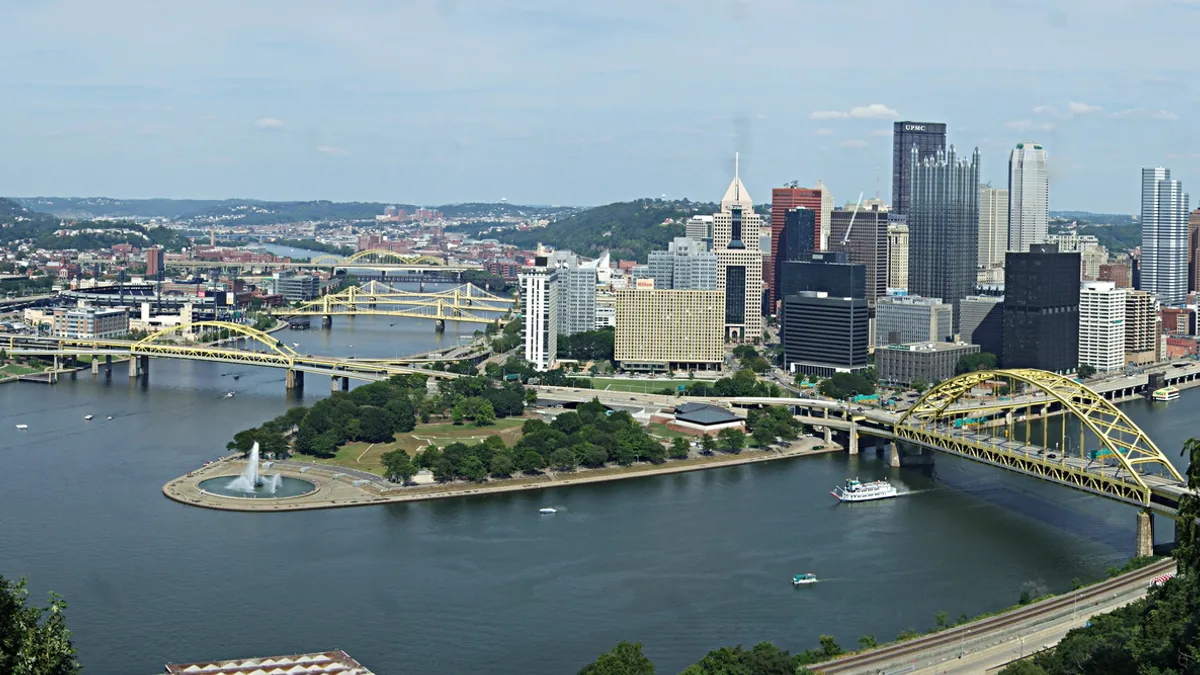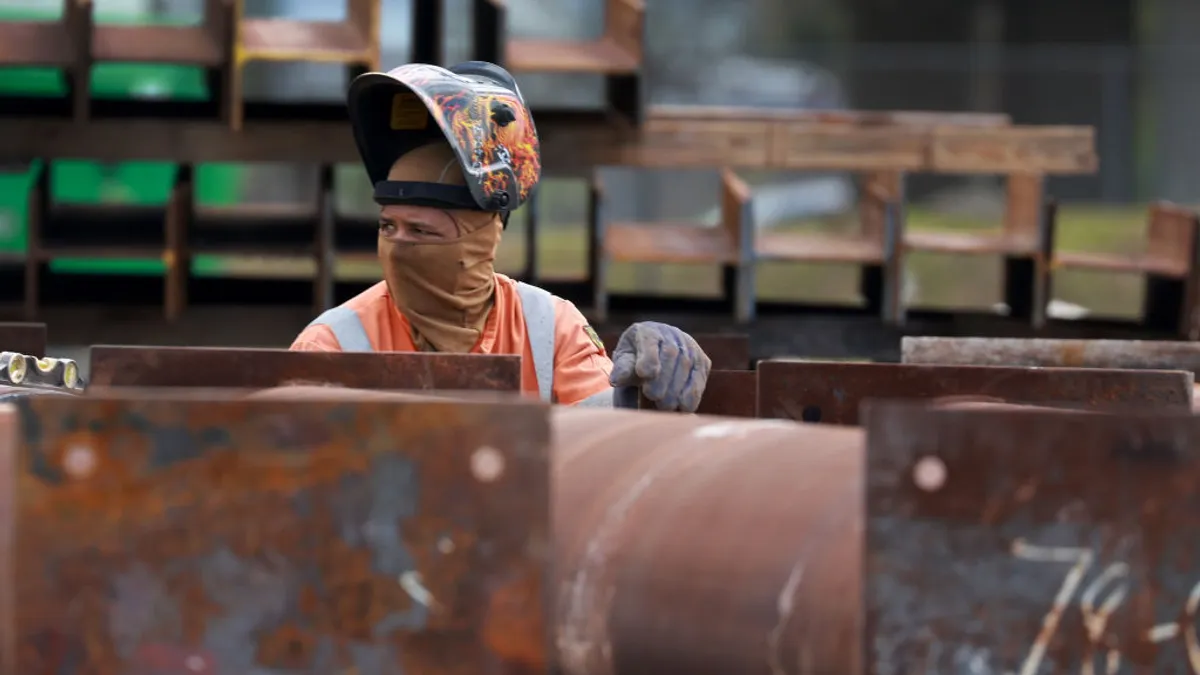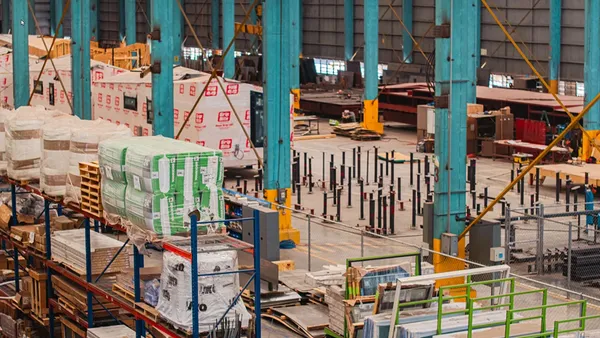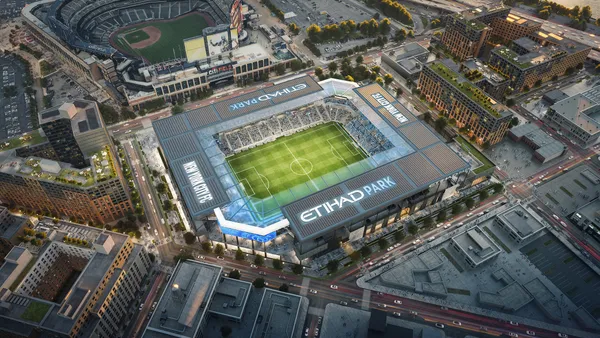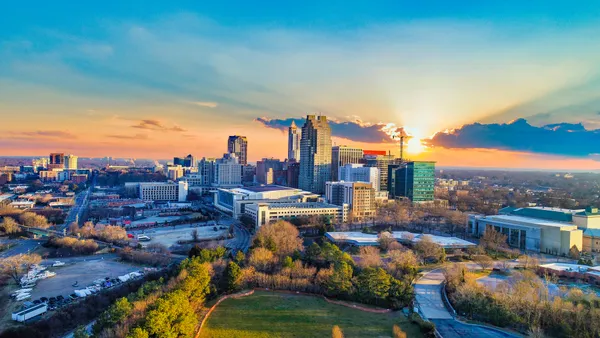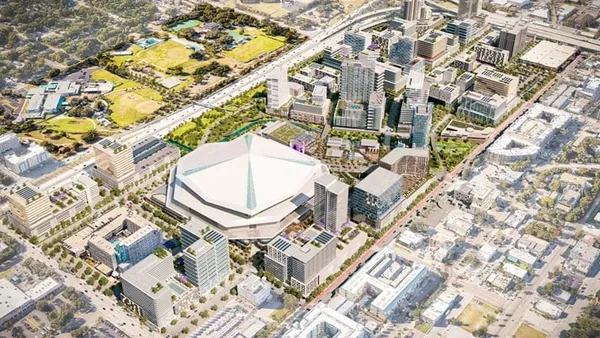Dive Brief:
- David Morehouse, president and CEO of the National Hockey League’s Pittsburgh Penguins franchise, told reporters last week that construction of the long-stalled redevelopment of the former Civic Arena site in Pittsburgh could start by fall, the Tribune-Review reported.
- The team won development rights to the 28-acre Lower Hill District site in a 2007 deal that saw the closure and demolition of Civic Arena and construction of the replacement PPG Paints Arena nearby. Plans for mixed-use space faced a number of setbacks since they were proposed in 2010, including funding lapses and an anchor tenant backing out. While many details of the plan have not been shared, the site will include retail, office and entertainment venues.
- Morehouse offered no other specific project details, but according to an agreement with the property's owners, the Urban Redevelopment Authority of Pittsburgh and Sports and Exhibition Authority of Allegheny County, the team must develop 10.75 acres by 2023 or forfeit rights to 40% of the parking revenue from the area.
Dive Insight:
In August, the Pittsburgh Post-Gazette reported that the Penguins hired Intergen Real Estate Group to develop the first phase of the project — a 250-unit residential component with affordable and market-rate options — after another developer failed to secure low-income tax credits. The redevelopment will add 1,000 units, 20% of which will be affordable, according to a 2017 agreement between the team and city officials to jumpstart the project.
Bjarke Ingels Group came up with a master plan in 2016 for the redevelopment, but it is uncertain whether the Penguins will stick with that design. BIG also designed a ballpark and mixed-use project for Major League Baseball's Oakland Athletics. Both teams are looking to develop a year-round relationship with their fans and also give others a reason to live, work and play in the neighborhoods around their sports venues.
In November, the A’s unveiled a plan that would have them build a new stadium on the site of an existing Port of Oakland terminal and redevelop the Oakland Coliseum, which is the team's current home. The new 34,000-seat venue would be surrounded by an elevated waterfront park, and the adjacent waterfront district would include residential, retail, small business and entertainment components. Last week the A’s unveiled plans for a BIG-designed gondola system that will connect the new ballpark to the Oakland Convention Center.


